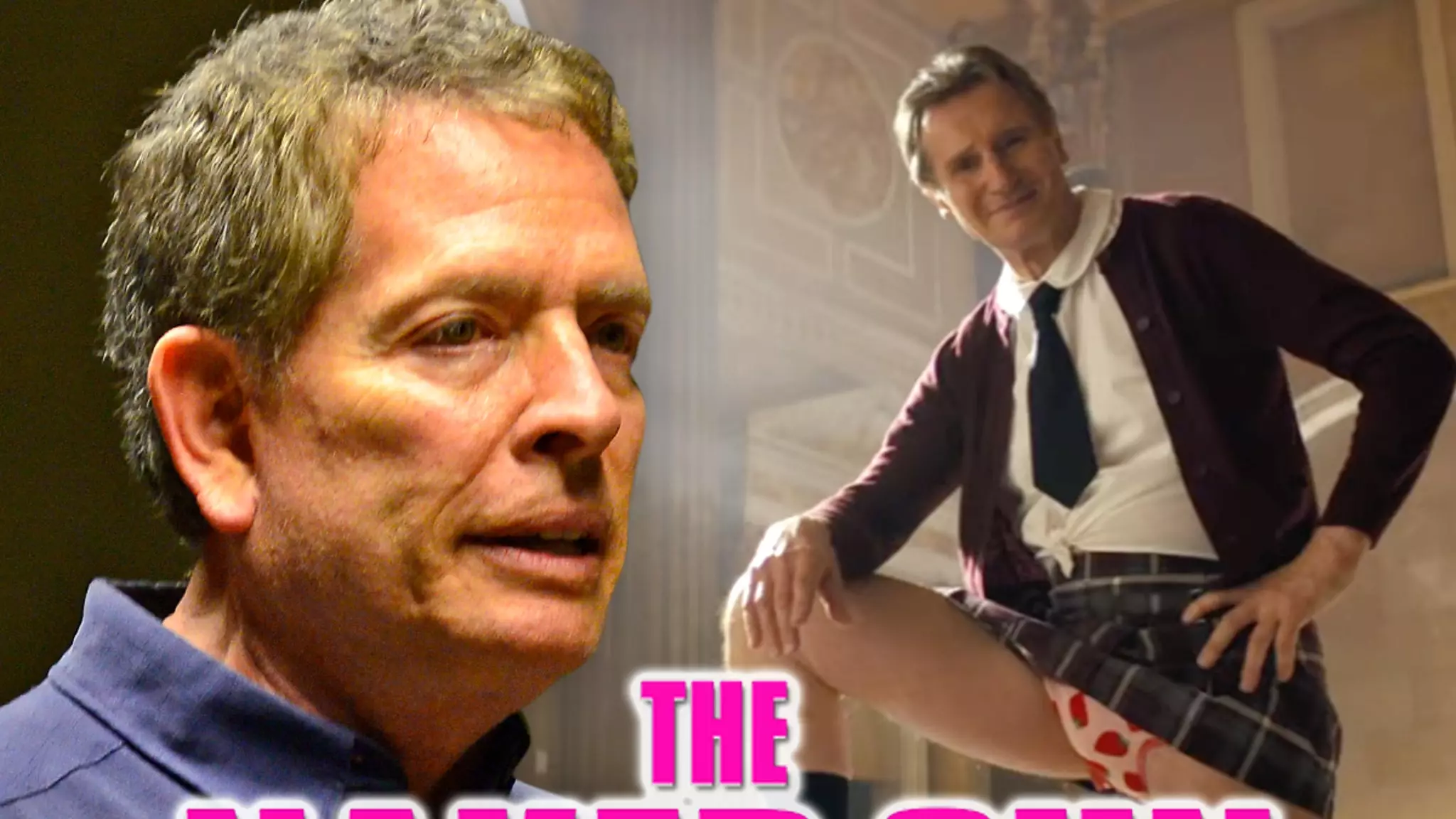The recently unveiled trailer for the remake of “The Naked Gun” has ignited a wave of passion among fans, but not all reactions have been overwhelmingly positive. The nostalgia attached to the original films, which starred the late Leslie Nielsen as the bumbling detective Lt. Frank Drebin, is palpable. However, this remake is veering into contentious territory. The iconic former director of the series, David Zucker, expressed deep regret at watching the trailer, admitting it left him feeling as if he had witnessed something irreversibly disturbing. A testament to the bittersweet feelings provoked by remakes—where both hope and skepticism coexist—is epitomized in Zucker’s harsh critique.
When a beloved classic is revisited, it often raises the question: Can the new incarnation capture the spirit of the original while bringing something fresh to the table? Zucker’s assessment suggests that the emotional weight of nostalgia may clash with the fear of tarnishing the legacy of the original. His graphic comparison to the infamous viral video, “2 Girls 1 Cup,” underscores an instinctual aversion to stepping into a potentially cringe-worthy retread of cinematic history. For many die-hard fans, remakes can feel like sacrilege, and the prospect of a poorly executed reboot creeps in as an unwelcome horror.
The Absence of Original Creators
One significant misstep that seems to fuel this discontent is the failure of Paramount to consult the original creators during the remake’s production. For Zucker, it isn’t merely about artistic pride; it’s about a lack of respect for the original material and its creators. When the minds behind “Airplane!” and “The Naked Gun” are sidelined, what can audiences expect other than a hollow echo of the original’s greatest hits? A strong collaborative spirit often infuses creativity with authenticity, and the absence of this partnership may very well render the new production soulless.
It’s a scenario as old as Hollywood itself: the new creation struggles with the shadows of its predecessor. Paramount’s oversight in reaching out to Zucker and his collaborators while simultaneously opting for new talent can be viewed as an oversight, perhaps even a blatant disregard of the legacy. As Zucker lamented, past experiences—such as “Airplane 2”—often loom large in the minds of creators, making them wary of revisiting past successes that didn’t resonate. A missed opportunity for synergy leaves the authenticity of the remake hanging in the balance.
A Complex Legacy: O.J. Simpson’s Involvement
Interestingly, while Zucker haplessly waves off the prospect of the remake, someone from a very different corner took a moment to appreciate its comedic attempts: O.J. Simpson’s longtime attorney, Malcolm LaVergne. His existence within the context of this story intertwines nostalgia with a controversial past—one that continues to haunt not just Simpson but all those associated with him. As a principal actor in the original trilogy, his character’s legacy is undeniably linked to the franchise. Yet simmers beneath this connection is an irony too glaring to ignore—the humor at Simpson’s expense in the new trailer has been welcomed by LaVergne.
For many, this duality evokes mixed emotions. LaVergne echoed a sentiment that those familiar with the “Naked Gun” series would find humor in the reference aimed at Simpson’s original role. However, viewers unaware of the full context might find the attempt at humor confusing. The nature of comedy is rich and layered, and such inside jokes test the boundaries of audience connection—either bringing a hearty laugh or falling embarrassingly flat.
Challenges of Humor in Modern Cinema
Today’s humor often teeters on the precipice of political correctness and social sensitivity. The “Naked Gun” franchise was defined by its absurdity and slapstick comedy, yet the modern landscape requires a delicate handling of themes that were once deemed harmless fun. The risk of alienating audiences while striving for laughter in a more socially aware arena should not be underestimated.
In a world where comedy faces genuine scrutiny, the question remains: can the essence of “The Naked Gun” remain intact while adapting to contemporary audiences? Or will it become yet another stark reminder that not all classics should be remade? As laughter grows increasingly complex, the journey that lies ahead for the new installment may prove arduous, raising the stakes for humor in an evolving social fabric.
The anticipation for the “Naked Gun” remake unearths not only nostalgia but complex emotions regarding legacy and creativity. Navigating the landscape between honoring the past while innovating for the future remains a formidable challenge—one that could define the cinematic landscape in the months to come.

